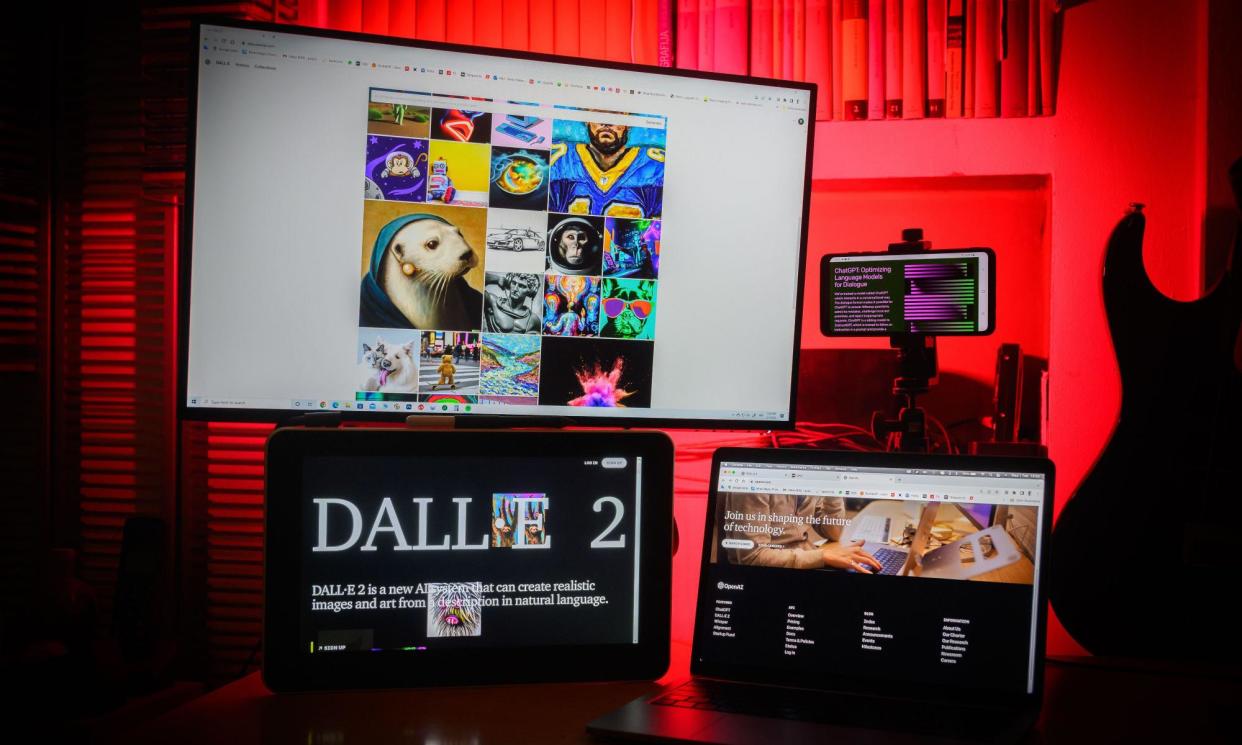Hallucinate, AI, authenticity: dictionaries’ words of the year make our biggest fears clear

The moment we’ve all breathlessly waited for is finally here: dictionaries are announcing their words of the year. Last week, the US’s most esteemed lexicon, Merriam-Webster, revealed its choice: “authentic”.
In its announcement, the dictionary said the word had seen a big jump in searches this year, thanks to discussions “about AI, celebrity culture, identity, and social media”. It makes a lot of sense – the concept of authenticity does, to use another buzzy phrase, sit at the intersection of so much of what’s been on our collective minds.
Large language models like ChatGPT and image generators like Dall-E have left us uncertain about what’s genuine, from student essays to the pope’s fashion choices, while concerns over artificial intelligence’s version of creativity helped fuel a long-running Hollywood strike. When it comes to the news, online mis- and disinformation, along with armies of bots, have us operating under different sets of facts. And in a world in which we carefully craft digital selves, it’s increasingly difficult to distinguish personality from persona.
Related: ‘Hallucinate’ chosen as Cambridge dictionary’s word of the year
Sure enough, other leading dictionaries’ words of the year are remarkably similar. Cambridge chose “hallucinate”, focusing its announcement on generative AI: “It’s far from perfect as it’s capable of producing false information – hallucinations – and presenting this information as fact.” Collins didn’t beat around the bush: its word of the year is “AI”.
It’s not typical for these dictionaries to be so aligned in their choices. Last year, Webster chose “gaslighting”, Cambridge picked “homer”, and Collins chose “permacrisis”. (Oxford, which incorporates public voting into its process, went with “goblin mode”; this year it also stuck with slang, choosing “rizz”.) In a polarized world, the dictionaries’ solidarity suggests there’s something we can all agree on: robots are terrifying. Unlike gaslighting and goblin mode, AI is an obsession that seems to cross generations. Whether you’re a boomer or gen Z, OpenAI feels like a sign of change far beyond NFTs, the metaverse and all the other fads we were told would transform humanity.
Meanwhile, back in the realm of actual humans, celebrities and wellness gurus are flexing their “authentic selves” – as Merriam-Webster points out, authenticity itself has become a performance. In other words, we’re getting very good at pretending to be real.
But what’s really real is, unfortunately, often not that interesting. The BeReal app, which attempts to showcase users’ authentic selves by forcing them to take and post pictures when they least expect to – even if what they’re doing at that moment is deeply unflattering – seems to have been a flash in the pan. And our real faces aren’t that watchable anyway: cosmetic surgery jumped nearly 20% between 2019 and 2022.
Maybe it’s time to take a different view of authenticity. What if we accept our social media feeds as not who we are but carefully curated extensions of ourselves – like little aspirational art projects? After all, who we want to be is an important part of our identity. Instead of seeing Instagram and TikTok as performed authenticity, maybe we can see them for what they are: authentic performances.

 Yahoo News
Yahoo News 
